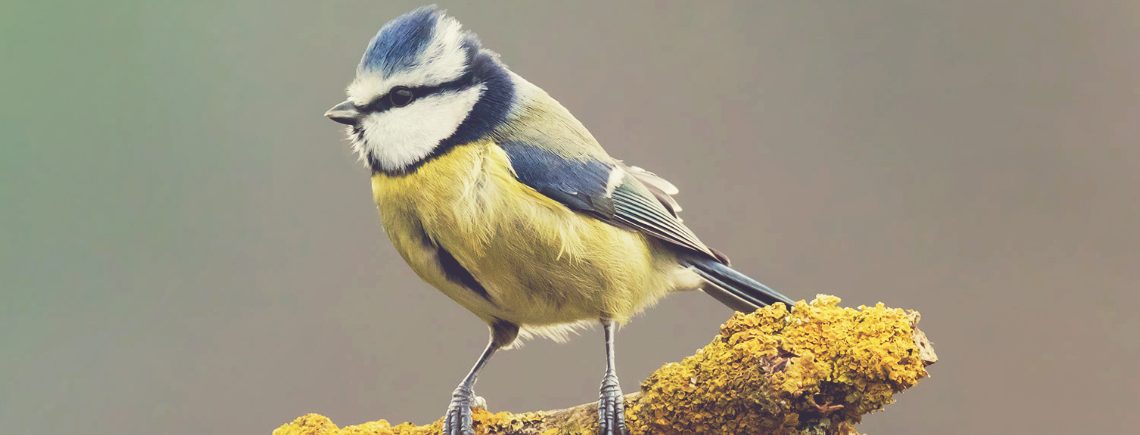How To Care For Garden Birds
It’s easy to assume that our garden birds can care for themselves, but as weather and landscapes change, so too has the natural habitat of Ireland’s birds, and many species have declined in population over the past number of decades.
In this blog post, we’ll give you all the information you need to help care for any wild birds you find in your garden, the best types of food to feed them, and what feeding routine you should adopt for each season.
Time of Year
Winter is traditionally a time when feeding your garden birds is especially important. As Irish winters get colder, it becomes increasingly difficult for our feathered friends to find natural food sources. Frozen ground and a lack of naturally occurring food sources have put pressure on the Irish bird population, and regular feeding can help them through the cold winter months. High energy foods, such as fats, peanuts and sunflower seeds can give a much need burst of energy and nutrients to sustain our birds throughout the winter.
Spring and early summer is breeding season for birds, and adults are working harder to care for themselves and their young families. The weather is cooler, and steady access to seeds, fats and water are important to help them during this season.
Dramatic weather changes impact on the natural availability of food for our wild birds, so as the seasons change, so does our responsibility to help where we can and provide an additional food source for the feathered visitors to our gardens.
Type of Food for Garden Birds
There are lots of different types of food available for wild birds, so how do you know which one to use? Different food offer alternative nutrients and energy sources and attract different species of bird into your garden.
- Peanuts: Traditional food, popular with a wide variety of species of garden birds. Peanuts are high in essential protein and provide a high energy source of fats and oils.
- Mixed Seed: A mixed seed blend will provide a variety of seeds, attracting multiple bird species into your garden, while also providing a mix of nutrients. Suitable for year-round feeding.
- Nyjer Seed: This oil rich seed is of a very small size, and is popular with Goldfinches and Siskins, amongst other birds. High in energy Nyjer seed provided a much needed boost during colder weather.
- Sunflower Seeds: An energy rich food source popular with many species
- Sunflower Hearts: The husk of the sunflower is removed to reveal the sunflower heart perfect for birds that need a high energy food source with minimum effort.
- Fat Balls & Suet Treats: Often supplemented with seeds, peanuts, berries and meal-worm, fat balls and suet treats will attract many species of bird into your garden.
- Meal-worm: Rich in protein, meal-worm are perfect for supplementing the diets of insect eating birds. Especially important in cold weather when grounds are frozen and access to natural sources can be difficult.

Health and Hygiene of Garden Birds
While feeding garden birds is important, it is also essential to provide them with a clean feeding place. You should never feed mouldy seed or peanuts as it may cause birds to become ill, and always wash your feeders, nesting boxes, table and water-baths regularly to keep them free from dirt and prevent illness. Prevent pests and rodents from visiting your garden by clearing away fallen foods from the ground, and positioning feeders out of the reach of pests and vermin.

Feeders, Nestboxes & Tables
Bird Tables & Hanging Feeders: Hanging feeders are perfect for feeding seeds, peanut and seed blends for agile birds like Blue Tits, Green-finches and House Sparrow, while other species such as Robins or Chaffinches are known to prefer to eat from a table.
Water Baths: For birds, particularly those that eat lots of seeds, need access to fresh drinking water, so a bird bath is a great way to help them out.
Nest Boxes: Give your birds in your garden a space to call home in your garden, by installing nest boxes. The size of the hole in your nest box will determine the species that it attracts, as they will replicate the natural environment in which they will choose to build their nest. Nest boxes should be installed before breeding season (which starts in February), to allow birds plenty of time to find them, and choose them as their home.
Any more questions?
Got any more questions about feeding garden birds? Be sure to ask one of expert Pet Care Advisors at your local Petmania store today.

